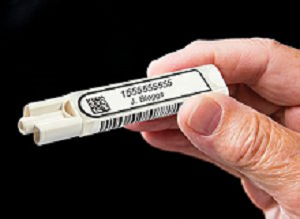 A US meta-analysis of 31 studies and 120.255 participants found that average risk patients can safely opt for an easy-to-use Faecal Immunochemical Test (FIT) rather than the gold-standard screening colonoscopy.
A US meta-analysis of 31 studies and 120.255 participants found that average risk patients can safely opt for an easy-to-use Faecal Immunochemical Test (FIT) rather than the gold-standard screening colonoscopy.
The researchers reviewed and analysed the findings of 31 studies with a total of 120,255 participants. Each individual had a FIT (short for faecal immunochemical test), which identifies hidden blood in stool. FIT results were compared to the finding of a subsequent screening colonoscopy and were found to have high detection rates for colorectal cancer. "Our analysis finds that FIT is a good 'pre-screening' test for average risk, asymptomatic adults, saving them hassle and the US healthcare system costs," said Dr Thomas Imperiale, the lead author, a gastroenterologist with IU School of Medicine and a research scientist with the Regenstrief Institute. "If annual FIT results remain negative, FIT buys you time until colonoscopy may be required, and it could be the case that a colonoscopy for screening may never be necessary or required."
Colonoscopy is considered to be the gold standard in the US for colon cancer screening, and it is often performed in average-risk, asymptomatic adults 50 and older. But, in other countries, such as the UK, Canada, and Italy, colonoscopy is typically performed for average risk individuals with no symptoms only if FIT results are positive.
Imperiale said the research indicates a similar approach could be safely deployed in the US and elsewhere, but only if there is a system to ensure annual testing. "We need a system that is population-based rather than the current opportunistic one – with better laboratory-physician coordination, dedicated follow-up, and assurance that colonoscopy is performed if FIT results are positive," he said. "The power of FIT is in its repeat application and in many cases, repeatedly negative results."
Of the more than 4,000 English-language studies on FIT that Imperiale and Rachel Gruber, a Regenstrief Institute research coordinator, reviewed, only the 31 studies that were analysed included both FIT and colonoscopy results for each study participant. Approximately a third of the participants with positive FIT results in these 31 studies were found to have an advanced precancerous polyp or actual colon cancer.
The US Preventive Services Task Force currently recommends screening for colorectal cancer using faecal occult blood testing – the category that includes FIT – sigmoidoscopy, colonoscopy, and other tests from age 50 to age 75, without preferentially recommending one particular screening test.
Abstract
Background: Studies report inconsistent performance of fecal immunochemical tests (FITs) for colorectal cancer (CRC) and advanced adenomas.
Purpose: To summarize performance characteristics of FITs for CRC and advanced adenomas in average-risk persons undergoing screening colonoscopy (reference standard) and to identify factors affecting these characteristics.
Data Sources: Ovid MEDLINE, PubMed, Embase, and the Cochrane Library from inception through October 2018; reference lists of studies and reviews.
Study Selection: Two reviewers independently screened records to identify published English-language prospective or retrospective observational studies that evaluated FIT sensitivity and specificity for colonoscopic findings in asymptomatic, average-risk adults.
Data Extraction: Two authors independently extracted data and evaluated study quality.
Data Synthesis: Thirty-one studies (120 255 participants; 18 FITs) were included; all were judged to have low to moderate risk of bias. Performance characteristics depended on the threshold for a positive result. A threshold of 10 µg/g resulted in sensitivity of 0.91 (95% CI, 0.84 to 0.95) and a negative likelihood ratio of 0.10 (CI, 0.06 to 0.19) for CRC, whereas a threshold of greater than 20 µg/g resulted in specificity of 0.95 (CI, 0.94 to 0.96) and a positive likelihood ratio of 15.49 (CI, 9.82 to 22.39). For advanced adenomas, sensitivity was 0.40 (CI, 0.33 to 0.47) and the negative likelihood ratio was 0.67 (CI, 0.57 to 0.78) at 10 µg/g, and specificity was 0.95 (CI, 0.94 to 0.96) and the positive likelihood ratio was 5.86 (CI, 3.77 to 8.97) at greater than 20 µg/g. Studies had low to high heterogeneity, depending on the threshold. Although several FITs had adequate performance, sensitivity and specificity for CRC for 1 qualitative FIT were 0.90 and 0.91, respectively, at its single threshold of 10 µg/g; positive and negative likelihood ratios were 10.13 and 0.11, respectively. Comparison of 3 FITs at 3 thresholds was inconclusive: CIs overlapped, and the comparisons were across rather than within studies.
Limitations: Only English-language studies were included. Incomplete reporting limited quality assessment of some evidence. Performance characteristics are for 1-time rather than serial testing.
Conclusion: Single-application FITs have moderate to high sensitivity and specificity for CRC, depending on the positivity threshold. Sensitivity of 1-time testing for advanced adenomas is low, regardless of the threshold.
Authors
Thomas F Imperiale, Rachel N Gruber, Timothy E Stump, Thomas W Emmett, Patrick O Monahan
[link url="https://www.regenstrief.org/article/annual-non-invasive-stool-test-effective-for-colon-cancer-screening/"]Regenstrief Institute material[/link]
[link url="https://annals.org/aim/article-abstract/2726664/performance-characteristics-fecal-immunochemical-tests-colorectal-cancer-advanced-adenomatous-polyps?doi=10.7326%2fM18-2390"]Annals of Internal Medicine abstract[/link]
